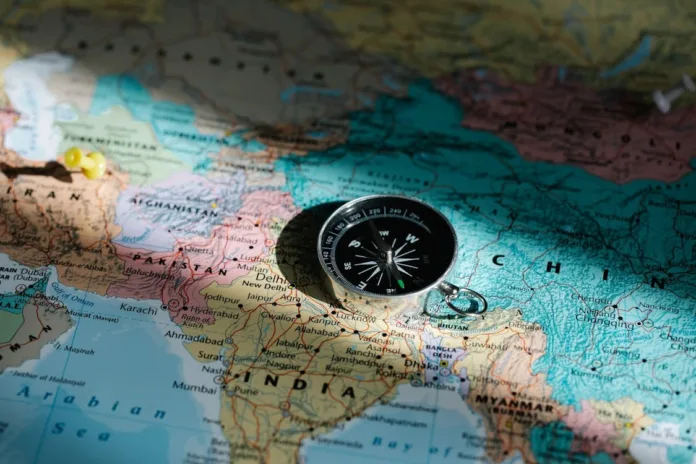The recent military confrontation between Pakistan and India has reset South Asia’s balance of power. For years, India appeared to dominate the region, sustained by its growing economy, military modernization, and close ties with the West. But this latest conflict revealed limits to India’s military edge and signalled Pakistan’s reassertion as a decisive regional actor. The region once again shows signs of bipolar competition rather than Indian primacy.
India’s losses during the clash, including at least six fighter jets, among them advanced Rafale aircraft, delivered a serious blow to its image of military superiority. Years of expensive procurement have not fully translated into operational dominance. Pakistan’s response, measured but firm, demonstrated both military competence and strategic restraint. Instead of escalating recklessly, Islamabad used the moment to bolster its diplomatic standing, asserting its deterrent capability while avoiding a broader conflict.
This episode unfolded as Pakistan strengthened its international partnerships. China’s immediate and unwavering support reaffirmed the depth of their strategic alliance. As Beijing’s key partner in the Belt and Road Initiative’s flagship China-Pakistan Economic Corridor (CPEC), Pakistan enjoys substantial Chinese investment and diplomatic cover. Türkiye and Azerbaijan also publicly backed Pakistan’s position, reflecting Islamabad’s growing ability to mobilize support beyond its traditional allies.
Political shifts elsewhere in South Asia have added to Pakistan’s advantage. In Bangladesh, the fall of Sheikh Hasina has opened the door, however cautiously, to a possible thaw in bilateral relations. Meanwhile, Pakistan has signalled to deepen its engagement with the Taliban government in Afghanistan, facilitated by Chinese mediation which will hurt the Indian designs in the region.
Equally significant is Pakistan’s renewed relevance to the United States. After the U.S. withdrawal from Afghanistan, bilateral ties cooled. Yet, Pakistan’s calibrated handling of this latest crisis, combined with its consistent cooperation on counterterrorism, has reopened channels in Washington. Pakistan’s outreach, delegation of seasoned diplomats, politicians and practitioners, led by Former Foreign Minister Bilawal Bhutto Zardari’s has helped shift Pakistan’s image from a security liability to a partner in regional stability. The delegation successfully defended Islamabad’s position in UN and other important western capitals which further paved the way to recognize Islamabad’s constructive role globally. The delegation pragmatically forwarded Pakistan’s wish of peaceful South Asia but with dignity and honour. It also highlighted the Islamabad’s role in countering terrorism in the region.
Moreover, Pakistan’s growing counterterrorism narrative is not justfor the sake of rhetoric rather weeks ago, joint operations between Pakistan’s Inter-Services Intelligence (ISI) and Turkey’s National Intelligence Organization, led to the capture of Daesh operative Özgür Altun, highlighting Pakistan’s operational effectiveness. U.S. Central Command’s General Michael Kurilla publicly praised Pakistan as a “phenomenal partner” in counterterrorism, noting its ongoing efforts against IS-Khorasan and other threats within Balochistan. Current leadership roles at the United Nations, chairing the Taliban Sanctions Committee and vice-chairing the Counter-Terrorism Committee, further signal international recognition of this repositioning.
At the center of regional tensions remains the unresolved Kashmir dispute. While India insists Kashmir is an internal matter, the conflict has revived international interest. U.S. President Donald Trump’s repeated offers to mediate — though unlikely to result in formal talks — have nonetheless challenged India’s narrative. Pakistan’s willingness to engage in external mediation contrasts with India’s rigid stance, subtly strengthening Islamabad’s diplomatic hand.
Taken together, these developments mark a return to bipolarity in South Asia. Pakistan has reclaimed strategic space through military resilience, diversified diplomacy, and expanding global partnerships. India remains a powerful actor, but its uncontested dominance is increasingly in question. A more competitive, fluid regional order is emerging, one shaped not solely by India’s rise but also by Pakistan’s strategic revival.
For policymakers and analysts, this shift demands fresh thinking. The assumption of Indian hegemony no longer holds. The region’s future will likely be shaped by continued competition, shifting alignments, and the growing interplay between regional powers and global actors like China and the United States. South Asia’s new bipolar reality has arrived and it strategic stability can only be achieved by having a check on India’s hegemonic designs internationally as it has been challenging the rule based order through violating international law, not only in the case of Kashmir conflict but by being officially involved in killings of Sikh activists in Canada, the US and Pakistan.
